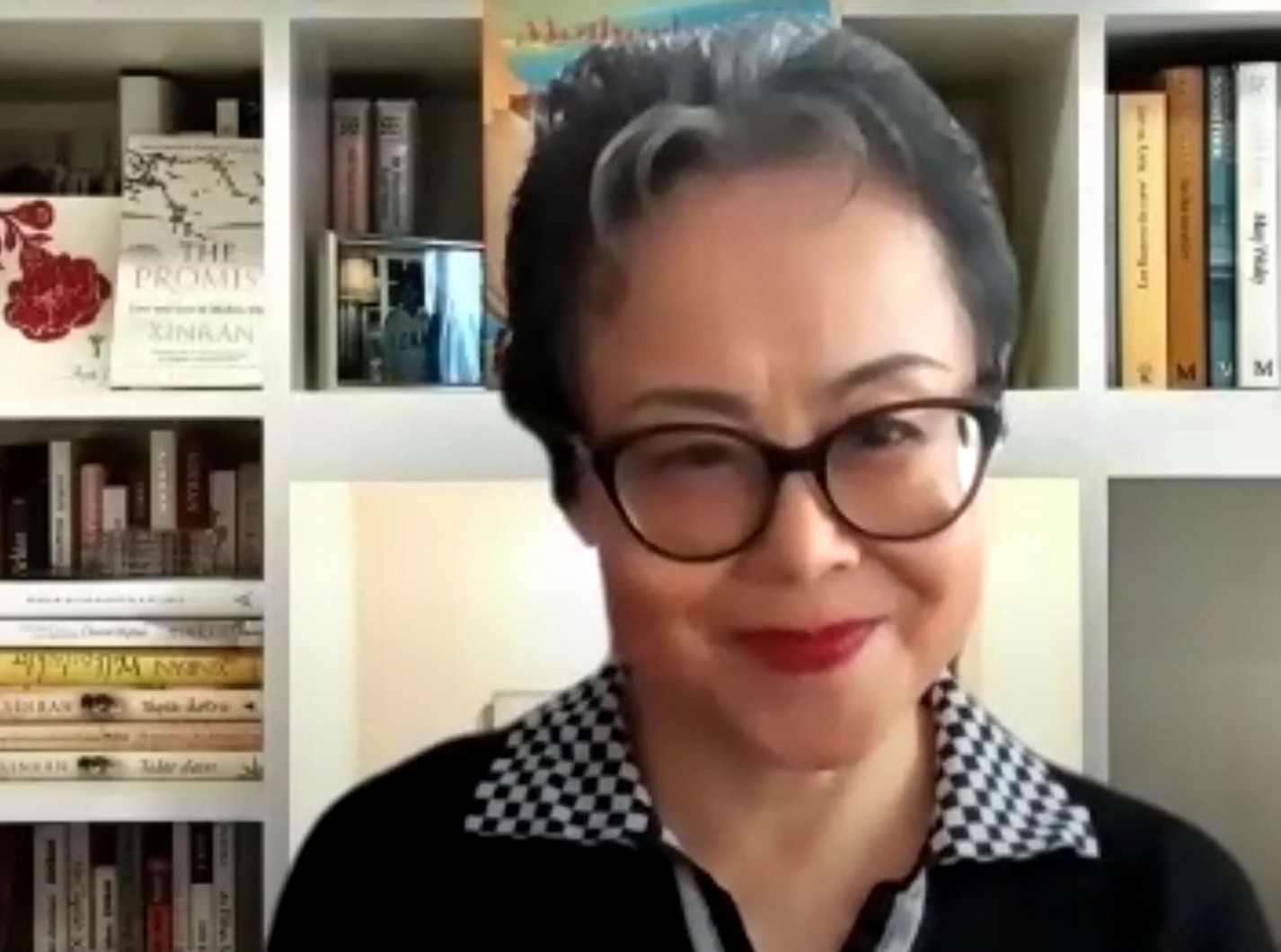Xinran has dedicated her career to highlighting the stories of Chinese people – and in particular Chinese women – set against the backdrop of an ever-changing political landscape. She started her career as the host of a call-in radio programme entitled “Words on the Night Breeze” which mainly focused on women’s stories. She has since gone on to publish nine books which have been translated into more than 40 languages.
Her writing focuses on Chinese realities in the aftermath of the Cultural Revolution. China Witness: Voices from a Silent Generation (2008) gives first-hand accounts of historical events in an attempt to counteract the destruction of historical documents during the Cultural Revolution. Her most recent release The Promise: Tales of Love and Loss in Modern China (2019) follows Chinese women through four generations.
Xinran has both experienced and observed censorship. And she highlights the ways in which Chinese censorship has changed over time with the introduction of new technologies and changing political dynamics.
The theme for Banned Books Week 2022 is “Books Unite Us. Censorship Divides Us.” Banned Books Week is an annual event celebrating the freedom to read. The initiative was launched in 1982 in response to a sudden surge in the number of challenges to books in schools, bookshops and libraries in the United States. Throughout the week, partner organisations come together to highlight the value of free and open access to information. We unite in shared support of the freedom to seek and to express ideas, even those some consider unorthodox or unpopular. XINRAN’S READING LIST
Xinran has also shared this reading list for those who want to learn more about the current realities in mainland China.
Feng Jicai
Born in Tianjin in 1942, Feng Jicai is a contemporary author, artist and cultural scholar who rose to prominence as a pioneer of China’s Scar Literature movement that emerged after the Cultural Revolution.
Yu Hua
Yu Hua grew up during the Cultural Revolution and this is a recurring topic in his writing. His writing often includes detailed descriptions of violence. Yu Hua’s most prominent novels include Chronicle of a Blood Merchant and To Live. The latter was adapted for film by Zhang Yimou but it was subsequently banned in China. Adding to this, his nonfiction collection, China in Ten Words (2010), cannot be distributed legally in mainland China because of its edgy political content.
Feng Tang
Through novels and poetry, Feng Tang describes life in contemporary Beijing. is best known for his novels Trilogy of Beijing (2021) and Oneness (2011). The latter explores the interplay between sexuality and religion.
Fan Wu
Fan Wu is a Chinese-American novelist and short story writer. She writes about China as well as Chinese immigrants in the US, with a focus on female characters. Her debut novel titled February Flowers (2007) is set on a Chinese college campus.





